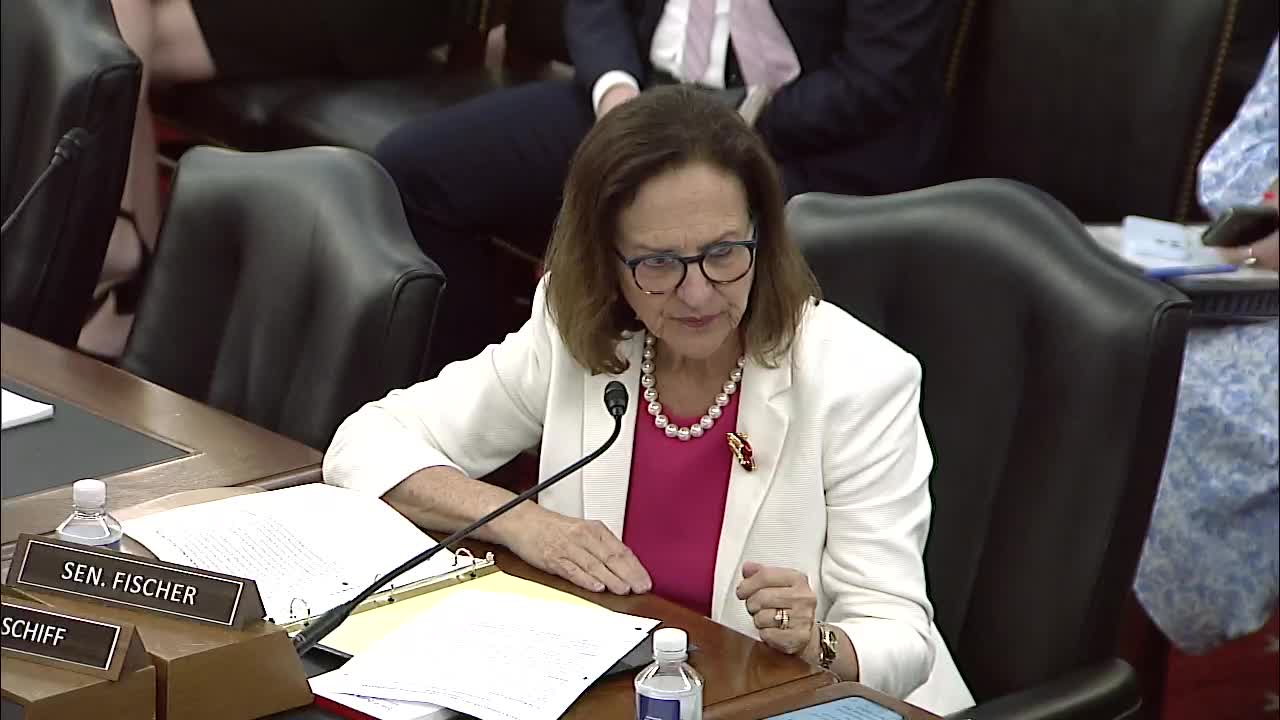Senator Warnock Questions USDA Reorganization Impact on Georgians and Disaster Funding
July 30, 2025 | Agriculture, Nutrition, and Forestry: Senate Committee, Standing Committees - House & Senate, Congressional Hearings Compilation
This article was created by AI summarizing key points discussed. AI makes mistakes, so for full details and context, please refer to the video of the full meeting. Please report any errors so we can fix them. Report an error »

On July 30, 2025, the U.S. Senate Committee on Agriculture, Nutrition, and Forestry convened to discuss the USDA's proposed reorganization plan, which aims to streamline operations and save approximately $2.2 billion by closing outdated facilities in the National Capital Region. This significant budgetary move has raised concerns among lawmakers about its potential impact on essential services provided to farmers and rural communities.
During the meeting, Senator Raphael Warnock expressed apprehension regarding how the reorganization might disrupt the lives of everyday Georgians who rely on USDA programs, particularly in light of recent disasters like Hurricane Helene. He highlighted the urgency of ensuring that disaster relief funding reaches affected communities without delay. In response, USDA officials assured the committee that frontline staff involved in commodity and disaster relief programs would not see their efforts diminished by the reorganization. They emphasized a commitment to retaining jobs for employees who choose to relocate to new hubs established as part of the plan.
The discussion also touched on the potential for staff downsizing. While USDA representatives acknowledged that not all employees might opt to move, they expressed optimism that many would be attracted to the new locations due to lower living costs and improved quality of life. This sentiment reflects a broader strategy to enhance workforce stability while maintaining service delivery to farmers and families in need.
Senator Warnock's concerns underscore the critical nature of USDA's role in disaster response, especially as the region braces for what could be a challenging hurricane season. The committee's discussions highlighted the need for careful implementation of the reorganization to avoid delays in the rollout of vital funding for disaster recovery.
As the USDA moves forward with its reorganization, the committee will continue to monitor its effects on service delivery and employee retention, ensuring that the needs of rural communities remain a priority amidst structural changes. The outcome of this initiative could significantly shape the future of agricultural support and disaster relief efforts across the nation.
During the meeting, Senator Raphael Warnock expressed apprehension regarding how the reorganization might disrupt the lives of everyday Georgians who rely on USDA programs, particularly in light of recent disasters like Hurricane Helene. He highlighted the urgency of ensuring that disaster relief funding reaches affected communities without delay. In response, USDA officials assured the committee that frontline staff involved in commodity and disaster relief programs would not see their efforts diminished by the reorganization. They emphasized a commitment to retaining jobs for employees who choose to relocate to new hubs established as part of the plan.
The discussion also touched on the potential for staff downsizing. While USDA representatives acknowledged that not all employees might opt to move, they expressed optimism that many would be attracted to the new locations due to lower living costs and improved quality of life. This sentiment reflects a broader strategy to enhance workforce stability while maintaining service delivery to farmers and families in need.
Senator Warnock's concerns underscore the critical nature of USDA's role in disaster response, especially as the region braces for what could be a challenging hurricane season. The committee's discussions highlighted the need for careful implementation of the reorganization to avoid delays in the rollout of vital funding for disaster recovery.
As the USDA moves forward with its reorganization, the committee will continue to monitor its effects on service delivery and employee retention, ensuring that the needs of rural communities remain a priority amidst structural changes. The outcome of this initiative could significantly shape the future of agricultural support and disaster relief efforts across the nation.
View full meeting
This article is based on a recent meeting—watch the full video and explore the complete transcript for deeper insights into the discussion.
View full meeting